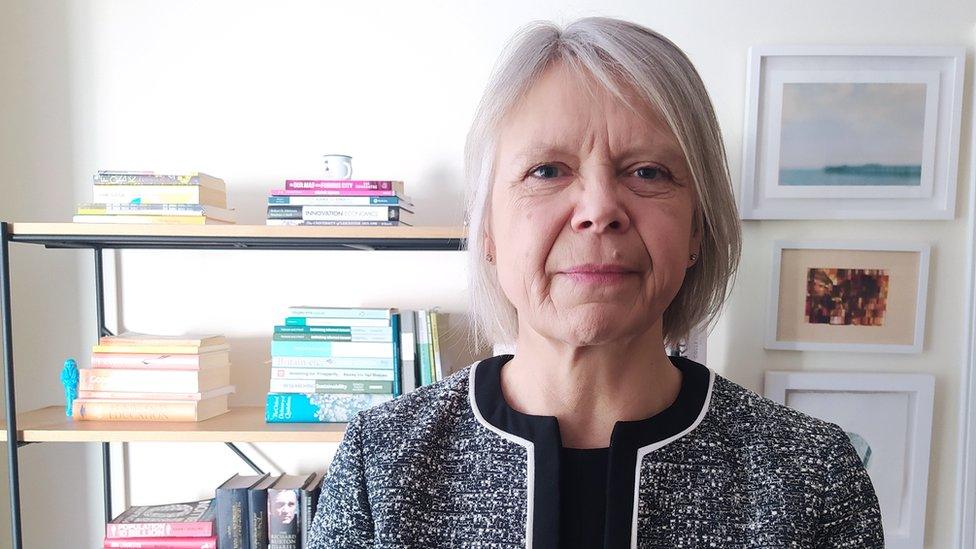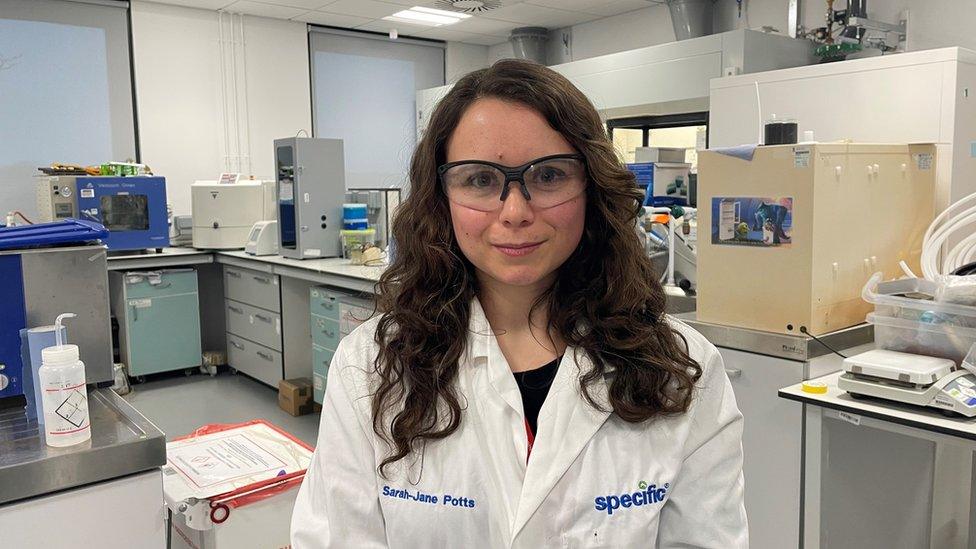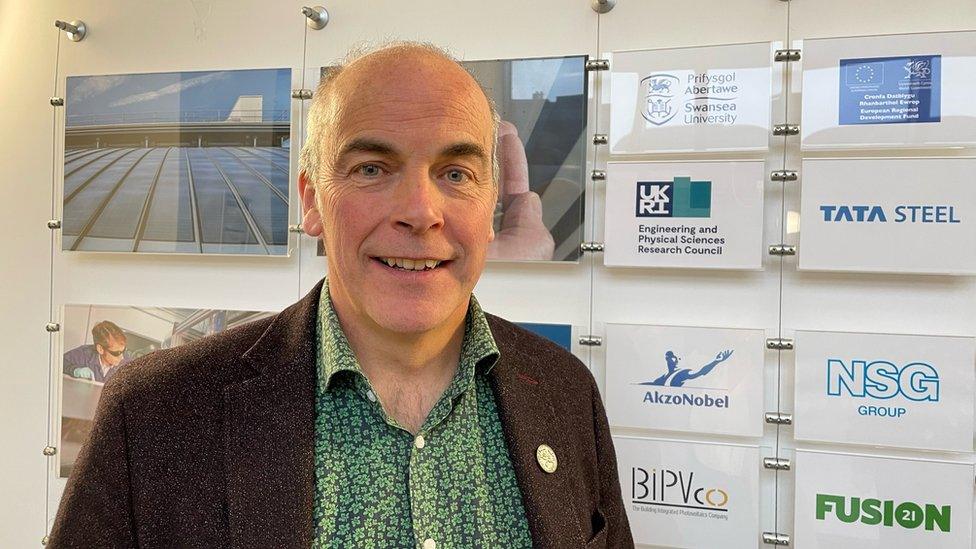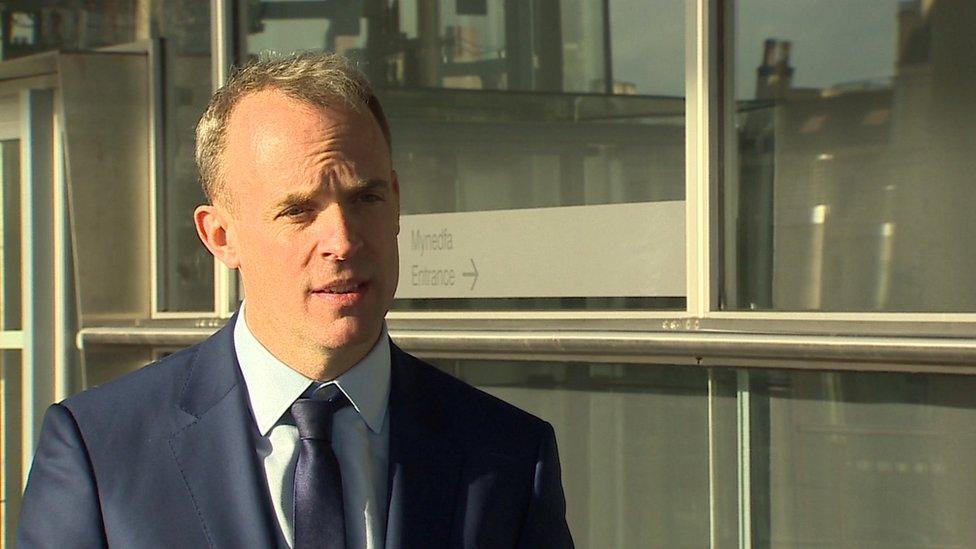Brexit: EU funding loss risks Welsh university jobs
- Published

Professor Helen Griffiths says the promised funding from the UK is insufficient
About 1,000 university research jobs are at risk unless the UK government urgently replaces European Union funding, bosses have warned.
Universities Wales said the loss of large-scale EU funding access has put the research and innovation sector on "the precipice of a disaster".
One researcher said she had put her wedding on hold after being told she would be made redundant.
The UK government said the UK Shared Prosperity Fund would match EU funding.
According to Universities Wales, between 2014 and 2020 about £370m was invested into university-related projects in Wales through EU social and development funds.
About 60 large-scale, multi-partner research projects in Wales rely on that funding, which is due to end this year.
One of those at risk is the Specific project, based at Swansea University, which recently won a Queen's Anniversary Prize for Innovation.

Dr Sarah-Jane Potts and her partner have had to put their wedding on hold over research job uncertainty
The project is developing technologies that can capture energy from the sun and store it in buildings until it is needed.
It aims to integrate buildings into Wales's energy and transport systems, as the country moves towards a net zero future.
Moving away from Wales
Dr Sarah-Jane Potts, 29, from Newport, is one of the project's research engineers and was handed a redundancy notice at the start of the year.
She and her partner both work for Specific and, with both their futures now uncertain, she said it is affecting their mental health and has forced them to put their plans to get married on hold.
If funding does not come in to save her job, she said she may be forced to move away from Wales.
Prof David Worsley, who created the Specific project, said the impact of losing EU funding went beyond just jobs.
He said the project aimed "to support industrial decarbonisation but also the decarbonisation of homes and transport".

Prof David Worsley says the research and innovation at risk has been used across the world
Rolling out Specific's technology to the Welsh housing market could help address the energy crisis and reduce carbon emissions, at the same time as helping people in Wales with fuel costs.
"Before the Ukraine war, 28% of people in Wales were in fuel poverty, it's more now. We should use the net-zero transition as an opportunity to eliminate fuel poverty. And our work is all about delivering that without using fossil fuels," he said.
Specific's innovations are being used around the world, from Mexico to India, after 12 years of research funded by the EU.
But now, three years after Brexit, the money is running out.
Prof Helen Griffiths, pro-vice chancellor for research and innovation at Swansea University, warned that Specific was one of many projects "on the cliff edge".
She said: "These jobs will be going from March onwards, so it's entirely pressing to do something about that now so we can retain the talent and we don't risk losing it from Wales."
The Department for Levelling Up, Housing and Communities (DLUHC) said: "The UK Shared Prosperity Fund will match EU funding and give local places control of how money is spent, remove unnecessary bureaucracy and enable local communities to invest in the priorities that matter to them."
But Prof Griffiths said that funding will not hit the right spot.
She said EU funding applied to the country as a whole, but the Shared Prosperity Fund would only work in local authority areas and would be less able to make a difference.
The DLUHC added: "Wales will receive £585m in funding from the UKSPF and councils are responsible for deciding what projects to fund through the UKSPF in consultation with local stakeholders."
In a statement, Welsh Economy Minister Vaughan Gething said: "The entire SPF allocation of £585m to Wales is £1.1bn less compared to EU funds."
- Published10 February 2022

- Published6 June 2018

- Published9 November 2015
